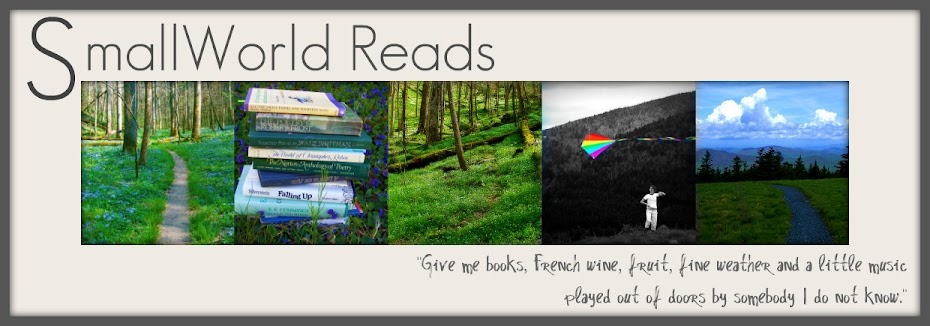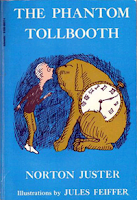 Bloodroot by Amy Greene. From my review: "I didn't want Bloodroot to end. I miss it."
Bloodroot by Amy Greene. From my review: "I didn't want Bloodroot to end. I miss it."The Kitchen House by Kathleen Grissom. From my review: "I wish I had another book guaranteed this good to anticipate!"
March by Geraldine Brooks. Based on the character of Mr. March from Little Women. From my review: "Who is the real Mr. March? A devout minister, a coward, an adulterer, a doting father? Ultimately he is not the man his wife or daughters think he is, but he's also not the man he thinks he is."
Mennonite in a Little Black Dress by Rhoda Janzen. From my review: "Oh my goodness. I laughed sooo hard while reading this book. I was actually guffawing."
 My Name Is Mary Sutter by Robin Oliveira. From my review: "This novel set during the Civil War was so fabulous, so compelling that I mourned when I had finished it"
My Name Is Mary Sutter by Robin Oliveira. From my review: "This novel set during the Civil War was so fabulous, so compelling that I mourned when I had finished it"The Postmistress by Sarah Blake. From my review: "This is definitely worth a read, especially if you enjoy reading around the outskirts of WW2—those unknown stories, the little snippets of lives changed forever."
Pride and Prejudice by Jane Austen. Re-read. From my review: "I love re-reading a novel and having it seem completely new."
Purple Hibiscus by Chimamanda Ngozi Adichie. From my review: "Adichie is a phenomenal
 storyteller and a lyrical writer—my absolute favorite combination."
storyteller and a lyrical writer—my absolute favorite combination."The Remains of the Day by Kazuo Ishiguro. From my review: Focuses on an English butler "whose sole job it is to serve others, even when it means sacrificing—or not being allowed to have—a life of one’s own."
The Song of the Lark by Willa Cather. From my review: "This is one of those books in which I wanted to keep underlining passages and turning down page corners. Such moments of profundity! Such perfectly poetic descriptions!"
 * This is the place where I am supposed to pick out my absolute favorite of the year, but I don't think I can. I can only narrow it down to two. Interestingly, these are both debut novels: Bloodroot by Amy Greene and My Name Is Mary Sutter by Robin Oliveira.
* This is the place where I am supposed to pick out my absolute favorite of the year, but I don't think I can. I can only narrow it down to two. Interestingly, these are both debut novels: Bloodroot by Amy Greene and My Name Is Mary Sutter by Robin Oliveira.* As always, most of the books I read in 2011 were fiction; however, I do love nonfiction, particularly memoirs, and read a few:
- Born Under a Lucky Moon by Dana Precious.
- The Geography of Bliss by Eric Weiner.
- The Immortal Life of Henrietta Lacks by Rebecca Skloot.
- Mennonite in a Little Black Dress by Rhoda Janzen.
- Nickel and Dimed: On Not Getting By in America by Barbara Ehrenreich
* I added 42 book to my Ever-Growing TBR list, and I marked off 24. (Weirdly, those numbers are exactly the same as last year's.) My TBR list continues to grow faster than I can conquer it. But that's OK. I learned about books from posts on The Sunday Salon, Semicolon's Saturday Review of Books, the Book Review Carnival, from various internet sources, and especially from other book bloggers.
* • Below is the total list of books read, minus the juvenile fiction. Each link leads to a review. My star-ranking system is as follows: 5 stars--must read; 4 stars--highly recommended; 3 stars--enjoyable; 2 stars--ick; 1 star--no, no, no.
- A Far Country (Daniel Mason)***
- Amy and Isabelle (Elizabeth Strout)****
- Away (Amy Bloom)***
- Backseat Saints (Joshilyn Jackson)**
- Bloodroot (Amy Greene)*****
- Born Under a Lucky Moon (Dana Precious)****
- Bride's House (Sandra Dallas)****
- Climbing the Stairs (Padma Venkatraman)****
- Diary, The (Eileen Goudge)***
- Double Bind (Chris Bohjalian)****
- Frankenstein (Mary Shelley)****
- Geography of Bliss (Eric Weiner)***
- German Woman, The (Paul Griner)***
- Immortal Life of Henrietta Lacks (Rebecca Skloot)****
- Judas Field (Howard Bahr)***
- Kitchen House (Kathleen Grissom)*****
- Little Giant of Aberdeen County (Tiffany Baker)****
- Little Stranger (Sarah Waters)****
- Looking for Salvation at the Dairy Queen (S. Gilmore)***
- March (Geraldine Brooks)****
- Mennonite in a Little Black Dress (Rhoda Janzen)****
- Midwife's Confession (Diane Chamberlain)****
- Murder on the Orient Express (Agatha Christie)***
- My Name Is Mary Sutter (Robin Oliveira)*****
- Nanny Returns (McLaughlin and Kraus) **
- New Stories from the South, 2010**
- Nickel and Dimed (Barbara Ehrenreich)***
- On Agate Hill (Lee Smith)***
- One Second After (William Forstchen)***
- Postmistress, The (Sarah Blake)****
- Pride and Prejudice (Jane Austen)*****
- Purple Hibiscus (Chimamanda Adichie)*****
- Queen's Daughter (Susan Coventry)***
- Remains of the Day (Kazuo Ishiguro)****
- Room With a View (E.M. Forster)****
- Saving Cee-Cee Honeycutt (Beth Hoffman)***
- Secret Daughter (Shilpi Somaya Gowda)****
- Secret Life of CeeCee Wilkes (Diane Chamberlain)****
- Shadow Tag (Louise Erdrich)**
- Song of the Lark (Willa Cather)****
- Wednesday Sisters (Meg Waite Clayton)**
- When We Were Orphans (Kazuo Ishiguro)***
Linked up on Semicolon's Saturday Review of Books: Best of the Year edition



























